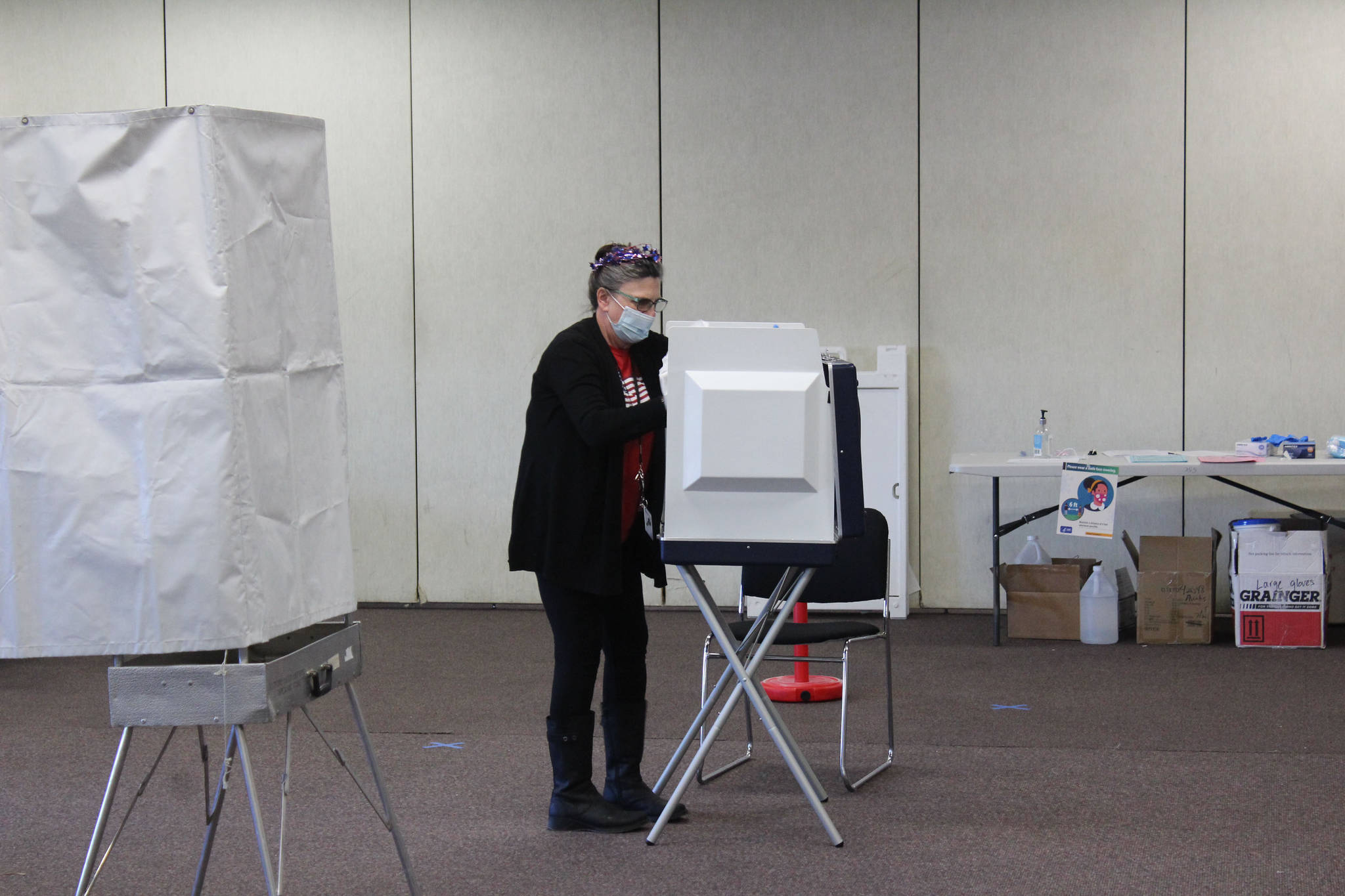Alaska’s first case of COVID-19 was reported on March 12, 2020 in Anchorage. The first cases on the peninsula emerged later that month. On Dec. 31, 2020, 46,986 cases had been reported statewide, including 3,267 on the Kenai Peninsula. The virus has killed 205 Alaska residents, including 16 from the Kenai Peninsula. The first death of an Alaskan was reported on March 24 in Washington.
Mid-November saw a surge in COVID statewide. The state’s seven-day average positivity rate peaked on Nov. 17 at 9.36%. On Dec. 5, the state reported a record daily case increase of 933 statewide, including 908 residents and 25 nonresidents.
The borough broke a record on Nov. 13, when it reported a daily case increase of 90, affecting nearly every borough community. On the same day, the Kenai Peninsula Borough School District announced the extension of 100% remote learning for 34 schools through the end of the month. Most district students were learning 100% remotely due to high COVID case counts in the community for the entire second academic quarter.
More than 1.2 million COVID-19 tests have been conducted in Alaska, including more than 50,000 on the Kenai Peninsula. South Peninsula Hospital has conducted more than 15,000 tests and Central Peninsula Hospital has conducted more than 10,000.
Like many hospitals throughout the country, Central Peninsula Hospital bore the brunt of the COVID-19 in its community. More than once, the hospital was forced to surge into overflow spaces to accommodate the number of patients they were treating. CPH also faced staffing issues due to workers having to quarantine. As of Dec. 31, CPH was treating six patients who were COVID-positive, with none on ventilators.
The hospital has also been proactive in administering the COVID-19 vaccine over the past weeks. The first doses of the COVID-19 vaccine arrived in Alaska on Dec. 14 and on the Kenai Peninsula on Dec. 16. The hospital held its first vaccination clinic for eligible health care personnel on Dec. 18, where 112 people were vaccinated. This included 11 residents and 17 staff at CPH’s Heritage Place Skilled nursing facility, which experienced an outbreak that saw more than half of all residents test positive.
As of Jan. 1, 13,722 initial vaccine doses had been administered in Alaska, including about 12,500 of Pfizer and BioNTech’s vaccine and about 1,300 of Moderna’s vaccine, according to the state Vaccine Monitoring Dashboard. The Alaska Department of Health and Social Services announced on Dec. 31 that the state would be receiving 52,900 more initial doses of COVID-19 vaccines for the month of January. This includes 27,300 doses of Pfizer’s vaccine and 25,600 of Moderna’s. Allocations for the Indian Health Service are included in the new numbers.
Worldwide, almost 85 million cases of COVID-19 had been reported as of Jan. 1, according to John Hopkins University. More than 20 million of those were in the United States.
The pandemic also saw an influx in money sent to the state and to municipalities via the $2.2 trillion CARES Act, which signed into law on March 27, 2020 and is the largest economic stimulus package in U.S. history. Included in the CARES Act was the Coronavirus Relief Fund, via which the State of Alaska received $1.25 billion. The Kenai Peninsula Borough received $37,458,449.47. The federal government extended the deadline by which CARES Act dollars must be spent last week to Dec. 31, 2021. This gives municipalities more time to figure out what they are going to do with their leftover funds.
Reach reporter Ashlyn O’Hara at ashlyn.ohara@peninsulaclarion.com.

